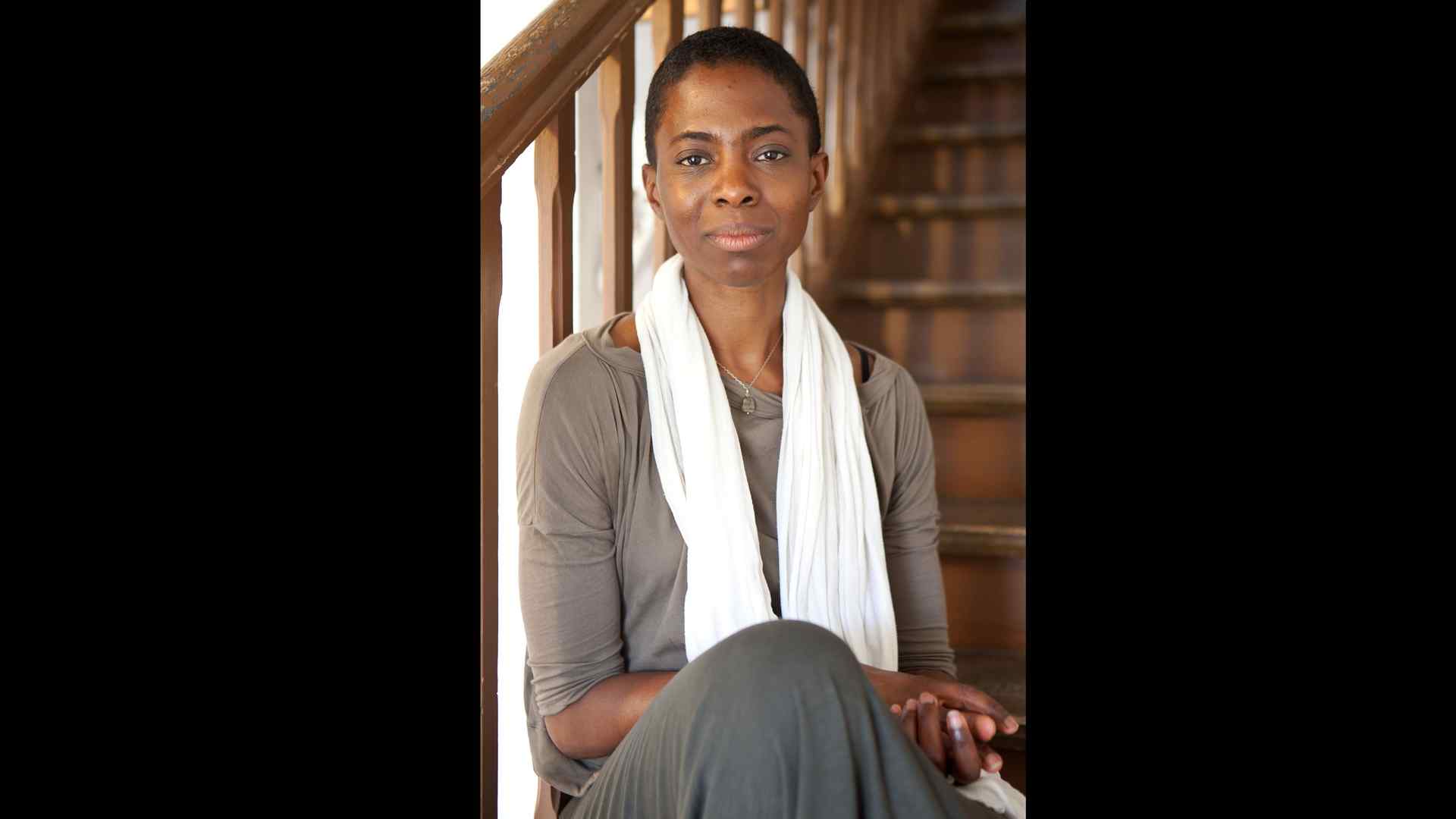
Assistant Dean of Academic Affairs
Born and raised in Chapel Hill, North Carolina, Amy Evans is a published playwright in addition to being the assistant dean of academic affairs. She studied French literature and creative writing at Oberlin College, the first American college to accept women and African Americans from its earliest days. Evans has lived in Brooklyn since 2004 and loves that the Atlantic Ocean is only a few miles away.
How did you decide to go into academia?
When I started teaching English, my students were mostly business professionals. The students were great, but the content bored me. Academia allowed me to investigate more holistic and engaging approaches to language acquisition and to pedagogy in general.
What was your last job before Juilliard?
Associate director of the Institute of American Language and Culture at Fordham. I had taught English as a second language there and then moved into an administrative position that allowed me to work more closely with faculty. It was the perfect primer for my role at Juilliard.
How did you end up working here?
The deeper I got into administration, the more I kept thinking how perfect it would be if I could do what I did on behalf of the performing arts. I had no idea whether Juilliard was hiring, but I decided if they were and if there was a position that might be a good fit, I was going for it. When I got the offer, I had to check my phone log to make sure it had really happened.
What’s been the most surprising thing about your job?
That it allows me to draw from all of who I am. At Juilliard, having an artistic practice is not just welcomed, it’s expected of you. That’s not something I take for granted.
What is the strangest job you’ve had?
Modeling. I landed a runway gig in the basement of the Louvre, a big benefit show featuring young African designers. I had never been on a catwalk before and had no idea how to walk properly. At the fitting, I confessed this to two other models, and one grabbed me by the hand and said, “We will teach you! Right now!” The three of us went outside and strolled around, swaying and turning and attracting lots of very-much-wanted attention. Even with all that practice, I nearly fell from my block heels the next night. Good fun.
You’re a playwright—how do you balance your job and your artistic endeavors?
I try not to have an “all-or-nothing” mindset. If I have half a day available to me for writing, that’s great; if I only have half an hour, I know how to make that work too. The only thing I can do wrong is not write. Once I accepted that, the balance worked itself out.
You’re working on a memoir about being what you call a “first-generation integrationist”—how did that come about?
A long time ago, I was explaining to a (white American, male) colleague that even though he and I were born around the same time and raised in the same country, we experienced it completely differently. His concept of American culture and mine were in many ways foreign to each other. He was annoyed and kept telling me it wasn’t true, which I found especially fascinating. What was the point of this big social experiment called integration if it just means my experience vanishes into a narrative that denies my existence? So I thought it was important to try writing about my experience outside of that narrative. With memoir, it’s your story on your own terms. You have to be truthful, or else you really shouldn’t bother.
What else are you passionate about?
I’m a huge proponent of self-care and good mental health. For me that means writing, running, eating well, connecting with the people I love, taking time to be alone. You’re no good to anyone if you’re not good to yourself. Sounds corny, but it’s true.
What have been the hardest and easier-than-you-might-have-imagined aspects of these last months?
Hardest is not knowing what tomorrow is going to bring. But the truth is, we never know what tomorrow will bring! So maybe that’s a lesson for me. Surely there could’ve been an easier way to learn it …
What has been your top quarantine go-to meal?
Popcorn. I’ve eaten enormous quantities of the stuff in the last few months. It’s crunchy, salty, easy to make. It ticks all the boxes for lifting my mood.
Who are you reading?
Roxane Gay. Michelle Alexander. And Kiese Laymon: “You are the ‘I’ to no one in the world, not even yourself.”
What do you always get asked?
Before the lockdown, it was “Where’s room 223C?” I miss those days.
Photo: Daniela Incoronato